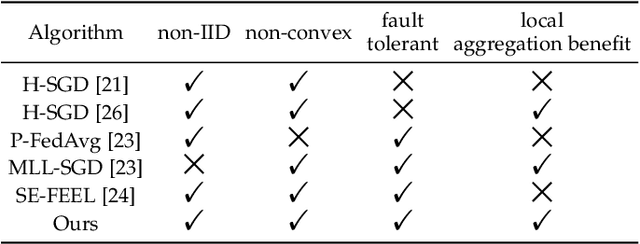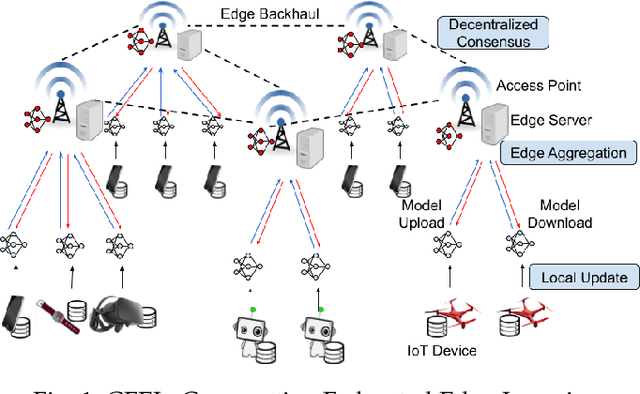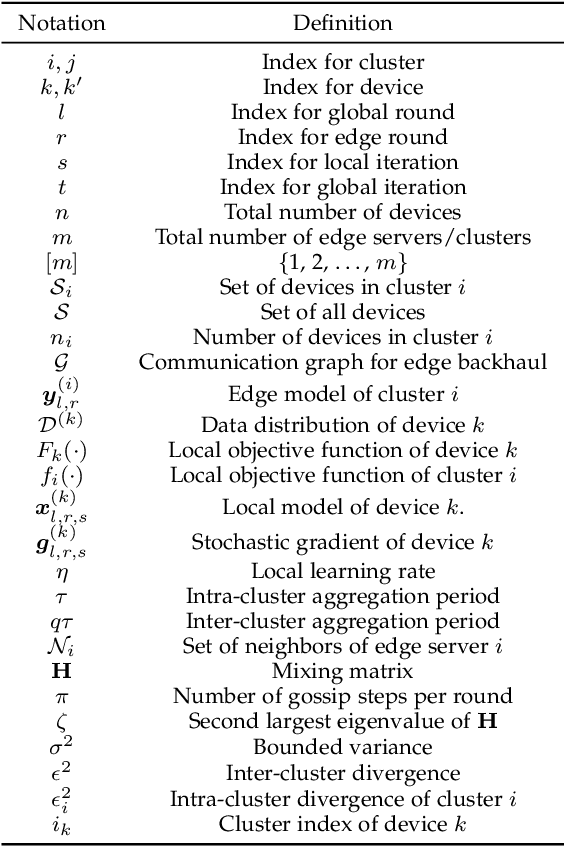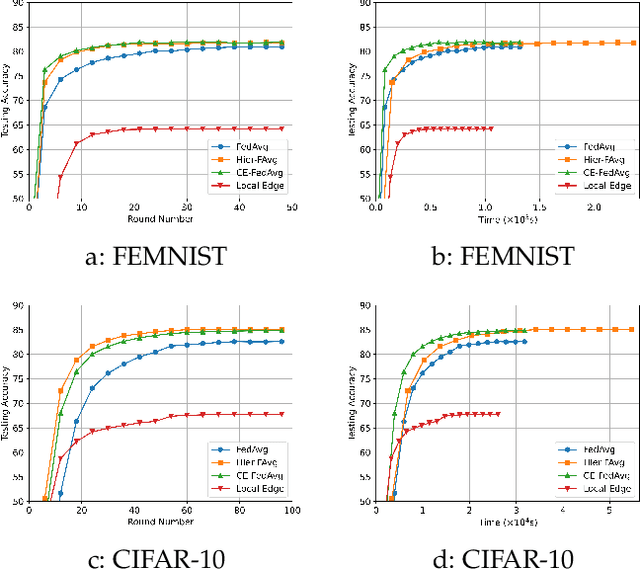Zhenxiao Zhang
Heterogeneity-Aware Cooperative Federated Edge Learning with Adaptive Computation and Communication Compression
Sep 06, 2024Abstract:Motivated by the drawbacks of cloud-based federated learning (FL), cooperative federated edge learning (CFEL) has been proposed to improve efficiency for FL over mobile edge networks, where multiple edge servers collaboratively coordinate the distributed model training across a large number of edge devices. However, CFEL faces critical challenges arising from dynamic and heterogeneous device properties, which slow down the convergence and increase resource consumption. This paper proposes a heterogeneity-aware CFEL scheme called \textit{Heterogeneity-Aware Cooperative Edge-based Federated Averaging} (HCEF) that aims to maximize the model accuracy while minimizing the training time and energy consumption via adaptive computation and communication compression in CFEL. By theoretically analyzing how local update frequency and gradient compression affect the convergence error bound in CFEL, we develop an efficient online control algorithm for HCEF to dynamically determine local update frequencies and compression ratios for heterogeneous devices. Experimental results show that compared with prior schemes, the proposed HCEF scheme can maintain higher model accuracy while reducing training latency and improving energy efficiency simultaneously.
Communication and Energy Efficient Wireless Federated Learning with Intrinsic Privacy
Apr 15, 2023Abstract:Federated Learning (FL) is a collaborative learning framework that enables edge devices to collaboratively learn a global model while keeping raw data locally. Although FL avoids leaking direct information from local datasets, sensitive information can still be inferred from the shared models. To address the privacy issue in FL, differential privacy (DP) mechanisms are leveraged to provide formal privacy guarantee. However, when deploying FL at the wireless edge with over-the-air computation, ensuring client-level DP faces significant challenges. In this paper, we propose a novel wireless FL scheme called private federated edge learning with sparsification (PFELS) to provide client-level DP guarantee with intrinsic channel noise while reducing communication and energy overhead and improving model accuracy. The key idea of PFELS is for each device to first compress its model update and then adaptively design the transmit power of the compressed model update according to the wireless channel status without any artificial noise addition. We provide a privacy analysis for PFELS and prove the convergence of PFELS under general non-convex and non-IID settings. Experimental results show that compared with prior work, PFELS can improve the accuracy with the same DP guarantee and save communication and energy costs simultaneously.
Scalable and Low-Latency Federated Learning with Cooperative Mobile Edge Networking
May 25, 2022



Abstract:Federated learning (FL) enables collaborative model training without centralizing data. However, the traditional FL framework is cloud-based and suffers from high communication latency. On the other hand, the edge-based FL framework that relies on an edge server co-located with access point for model aggregation has low communication latency but suffers from degraded model accuracy due to the limited coverage of edge server. In light of high-accuracy but high-latency cloud-based FL and low-latency but low-accuracy edge-based FL, this paper proposes a new FL framework based on cooperative mobile edge networking called cooperative federated edge learning (CFEL) to enable both high-accuracy and low-latency distributed intelligence at mobile edge networks. Considering the unique two-tier network architecture of CFEL, a novel federated optimization method dubbed cooperative edge-based federated averaging (CE-FedAvg) is further developed, wherein each edge server both coordinates collaborative model training among the devices within its own coverage and cooperates with other edge servers to learn a shared global model through decentralized consensus. Experimental results based on benchmark datasets show that CFEL can largely speed up the convergence speed and reduce the training time to achieve a target model accuracy compared with prior FL frameworks.
 Add to Chrome
Add to Chrome Add to Firefox
Add to Firefox Add to Edge
Add to Edge